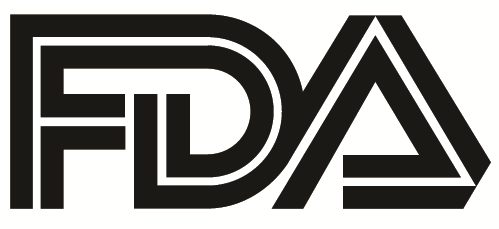Report: Scott Gottlieb To Be Named Trump's FDA Pick
New Enterprise Associates boasts a portfolio with more than an alphabet's worth of drug makers and research firms in the fold. It also might boast the new head of the Food and Drug Administration.

New Enterprise Associates boasts a portfolio with more than an alphabet’s worth of drug makers and research firms in the fold, from eye-therapy maker Aciex on down to Ziarco, itself recently acquired by Novartis. It also might boast the new head of the Food and Drug Administration.
Scott Gottlieb, a partner at the firm, is expected to be President Donald Trump’s pick to head the Food and Drug Administration. The selection was reported by the Associated Press late Friday afternoon. Conflicts of interest are expected to be a major line of questioning in his confirmation hearings.
Gottlieb served as the deputy commissioner of the FDA under George W. Bush, leaving in 2007. Since, he has served as a board member and consultant for several pharmaceutical companies, including GlaxoSmithKline.
Gottlieb seems consistent with Trump’s criticism of the current FDA process, which he described in his February 28th address to Congress as "slow and burdensome." At the time, he underlined a need to “slash restraints” in order to get faster treatment to patients. Gottlieb has written extensively for various publications over the past decade, and has stressed the need for an expedited approval process. According to Scientific American, he has not gone as far as demanding the abandonment of efficacy requirements, but has championed the notion of relaxing requirements on the scope of clinical trials.
Gottlieb has recently contributed articles to The Wall Street Journal critical of government intervention in healthcare, including the Affordable Care Act, as well as one in late September that criticized many of then-Trump-rival Hillary Clinton’s positions on drug pricing.
If approved by Congress as the head of the FDA, Gottlieb would have the reigns to a sprawling organization responsible for policing the sale of consumables from milk to cigarettes, but particularly and most contentiously the approval process of new and novel therapies. The agency has oversight on products that represent a quarter of every dollar that Americans spend each year.
The pick has already elicited scorn from expected sources. A Harvard professor who studies the FDA, Daniel Carpenter, told The New York Times that Gottlieb was “the least problematic of a very sorry pool of candidates,” but also that “he would be the most interest-conflicted commissioner in American history, by far.”
The pick comes after a great deal of speculation that had originally placed more controversial picks, like Peter Thiel associate Jim O’Neill, in the running. Unlike O’Neill, the previously rumored frontrunner, Gottlieb does have history as a practicing physician.
In a survey by Mizuho Securities USA Inc. that was released last month, 53 drug companies were asked who they’d prefer to head the organization going forward. Gottlieb got 72% of their votes.
For insight into how a Gottlieb-headed FDA might look, it is perhaps valuable to examine a long and thorough critique of the organization that he published in 2012 in National Affairs. “To the extent that it can, the FDA should begin to separate the generation and analysis of scientific data from the policy judgment of the final approval decisions,” he wrote. “This sort of approach — one that fundamentally re-examines and recasts the FDA's responsibilities — would do more than current legislative proposals to speed up the FDA's drug-approval process without undermining the agency's ability to protect the public.”
Podcast: Match Made in Hospitals — Patient-Matching Technology Can Improve Healthcare
September 21st 2021Clay Ritchey, CEO of Verato, highlights the administrative and financial benefits that patient-matching technology can provide hospitals and health systems, as well as how it can improve the patient experience.
Podcast: Using Digital Solutions to Address Technology Shortfalls with Citius Tech Senior VPs
July 29th 2021In an interview recorded earlier this year, Chief Healthcare Executive Associate Editorial Director Mary Caffrey spoke with 2 leaders of Citius Tech about meeting healthcare challenges with digital solutions.